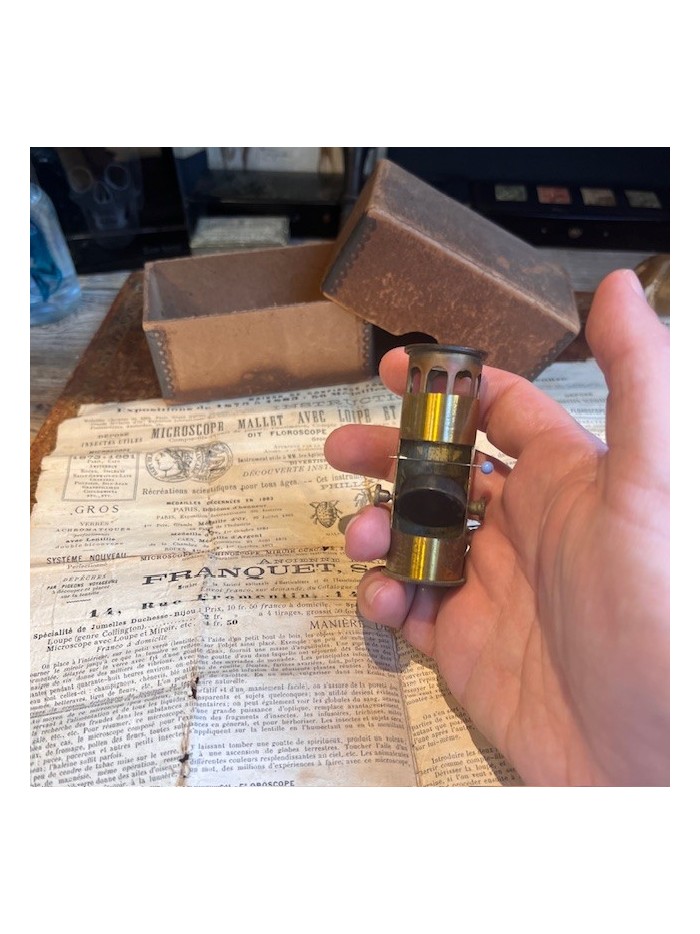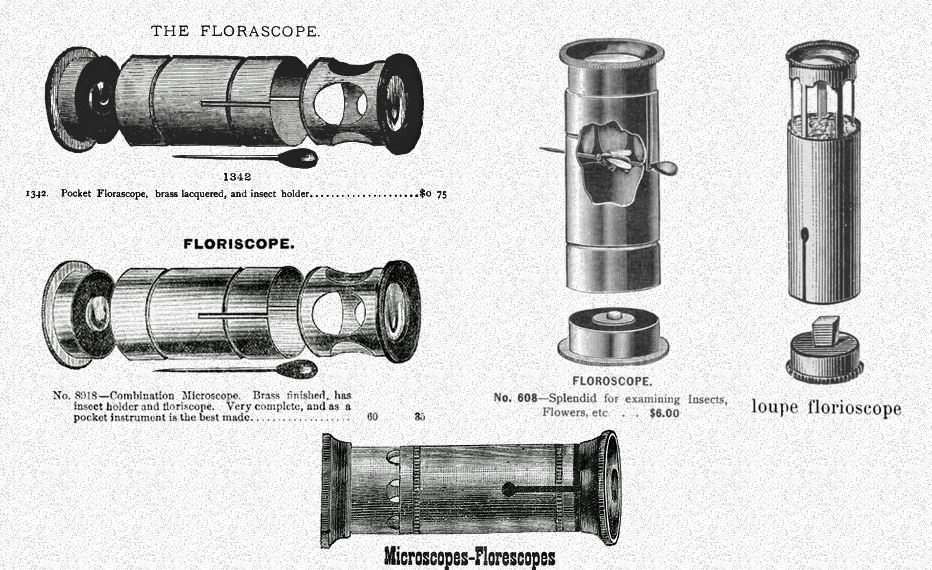
Antique glass dropper in white glass - Heart stopper -...
Antique glass dropper in white glass - 30ml
Apothecary - Pharmacy
Heart-shaped stopper

















Mallet microscope or Floroscope with mirror
Botanist's microscope - Pocket microscope
With its original instructions in its original cardboard box - 1883
Mallet Microscope or Floroscope with mirror
Botanist's microscope
With its original instructions leaflet in its original cardboard box.
This small microscope, also known as a Floroscope or botanist's microscope, was sold from the 1850s to the 1930s in France.
According to the instructions leaflet in the box, it must date from after 1883, based on the numerous medals it won at various exhibitions, the last of which was in 1883.
A small brass pocket microscope with glass lenses for rapid observation of insects, small minerals, flowers, etc. in nature.
The ingenious thing about them is that they are made up of 2 parts, and this model also features a pivoting mirror that can illuminate and bring more light to both sides.
Please note that the mirror is damaged: it has lost its tint and no longer reflects light.
The first lens, for observations requiring low magnification, is a biconvex lens mounted on an openwork cylinder. The lens is placed on the object to be magnified.
The second, for magnifications of over ten times, is the Stanhope lens. The Stanhope lens is very rudimentary, consisting of a glass cube, prism or cone with a flat surface.
The needle shown here (not original) was used to pierce the object or insect to be observed and placed under the simple lens.
Late 19th century - circa 1883
Perfect for any self-respecting budding entomologist!
Height unfolded: 8cm Closed: 6.5cm Diameter: 2.8cm
Here's an illustration of what this floroscope looked like in a period advertisement:
(Source: The Compendium - www.lecompendium.com)
Antique glass dropper in white glass - 30ml
Apothecary - Pharmacy
Heart-shaped stopper
Antique bronze base for ball, sphere, or egg - Base - stand
The feet are shaped like animal mouths.
Late 19th - early 20th century
Sold alone without egg or ball
An antique absinthe topette (decanter)
10 Beaded Topette
Aïtos Protective ancestor totem from Timor (Indonesia) with crocodile effigy
Column statue from Indonesia
Mounted on base: 2.70m high
Unknown material - No label
Antique pharmacy bottle
Apothecary vial
Product remains inside but cap is blocked and bottle will not open
School canvas poster
Snake
Hagemann educational material publishing house in Düsseldorf
Printed in 1976
70° alcohol
Antique pharmacy bottle - Apothecary
Mrs Bataille-Simon, First Class Pharmacist in Beaumont sur Sarthe - Tel 9
Septichrome
Antique pharmacy bottle
Apothecary vial
Ovarine - Ovarian powder
Antique pharmacy bottle
Apothecary
Mixture for compresses
Antique pharmacy bottle
Apothecary
Empty
Naturalized Small-spotted catshark
Scyliorhinus canicula
Unprotected species - Old taxidermy: visible suture under the belly and on the left side near the mouth
Antique study mask by Simonne Laubé, circa 1930
Flayed model
In vulcanized and painted rubber
Inspired by the famous death mask from L'Inconnue de la Seine
Antique brown glass bottle
Huile camphrée
Apothecary - Pharmacy
Sodium formate
Antique pharmacy bottle - Apothecary
There is still some product left inside
Chlorure de magnésium
Antique pharmacy bottle
Apothecary vial
EMPTY
Iodine tincture
Antique pharmacy bottle
Apothecary vial
EMPTY

Mallet microscope or Floroscope with mirror
Botanist's microscope - Pocket microscope
With its original instructions in its original cardboard box - 1883


















